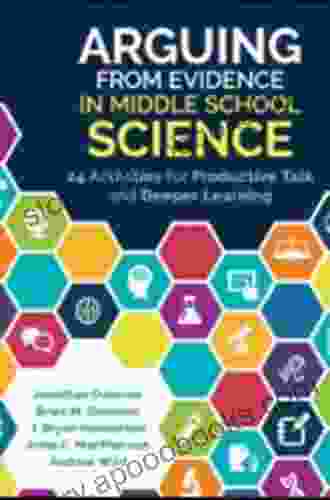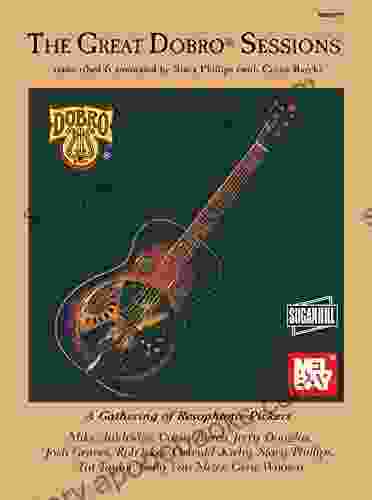Breaking Down the Asian American Achievement Paradox: Unmasking the Complexities of Success and Disparity

Unveiling the Enigma of Asian American Achievement
The Asian American community stands as a testament to the power of ambition and determination. With remarkable academic achievements, high rates of college attendance, and notable contributions to business, technology, and the arts, Asian Americans have shattered stereotypes and emerged as a model minority. However, beneath this veneer of success lies a more nuanced reality, characterized by significant disparities and societal challenges.
The "Asian American Achievement Paradox" captures this enigmatic duality, highlighting both the remarkable triumphs and the persistent struggles faced by this diverse population. This article delves into the complexities of this paradox, exploring the interplay of cultural factors, family expectations, community dynamics, and systemic barriers that shape the experiences of Asian Americans.
4.1 out of 5
| Language | : | English |
| File size | : | 1856 KB |
| Text-to-Speech | : | Enabled |
| Screen Reader | : | Supported |
| Enhanced typesetting | : | Enabled |
| Word Wise | : | Enabled |
| Print length | : | 266 pages |
The Model Minority Myth: A Double-Edged Sword
The model minority myth, which portrays Asian Americans as a universally successful group, has perniciously influenced public perception and policy. This myth perpetuates a false narrative of homogeneity, obscuring the diverse experiences and challenges within the Asian American community.
While some Asian American subgroups have achieved high levels of socioeconomic success, others, such as Southeast Asian refugees and Asian immigrants with limited English proficiency, face significant economic and social hurdles. The model minority myth masks these disparities, leading to assumptions that all Asian Americans have equal access to opportunities and resources.
Cultural Factors and the Influence of Family Values
Asian American culture places a premium on education and achievement. The strong emphasis on academic excellence within many Asian families creates a competitive and rigorous environment for children. Parents often invest heavily in their children's education, providing them with additional tutoring, extracurricular activities, and language classes.
This cultural drive for success can motivate Asian American students to excel academically. However, it can also lead to high levels of stress and anxiety, as well as a sense of pressure to meet unrealistic expectations.
Community Dynamics and Social Support
Asian American communities play a crucial role in supporting and nurturing their members' academic and professional aspirations. Ethnic enclaves, such as Chinatowns and Koreatowns, provide a sense of belonging and cultural continuity. Community organizations offer mentorship programs, after-school tutoring, and other resources that contribute to educational success.
Strong family ties and extended family networks also contribute to Asian American resilience. However, these same community dynamics can sometimes foster a sense of isolation and a reluctance to seek external help when facing challenges.
Systemic Barriers and the Impact of Discrimination
Despite their academic achievements, Asian Americans still face systemic barriers that limit their opportunities and contribute to disparities in income, employment, and social mobility.
Racial discrimination and bias in hiring, promotion, and housing persist in many sectors of American society. Asian Americans may also encounter linguistic barriers, cultural misunderstandings, and a lack of representation in positions of power. These systemic challenges can limit their access to resources and opportunities, contributing to the achievement paradox.
Breaking the Cycle of Disparity
Addressing the Asian American Achievement Paradox requires a multifaceted approach that tackles both individual and systemic challenges.
* Challenging Stereotypes: Dismantling the model minority myth is essential for creating a more accurate understanding of the diversity and challenges within the Asian American community. Educators, policymakers, and the media have a responsibility to promote accurate portrayals of Asian American experiences. * Supporting Educational Success: Providing equitable access to quality education for all Asian American students, regardless of their background or circumstances, is crucial. This includes addressing language barriers, providing culturally responsive teaching, and offering support services to students from low-income families. * Empowering Communities: Supporting and strengthening Asian American communities is vital for fostering a sense of belonging, providing resources, and advocating for policies that promote equity. * Combating Discrimination: Enacting anti-discrimination laws and implementing policies that promote diversity and inclusion in all sectors of society is essential for creating a just and equitable environment for Asian Americans.
The Asian American Achievement Paradox highlights the complex interplay of cultural factors, family expectations, community dynamics, and systemic barriers that shape the experiences of this diverse population. By recognizing the nuances of this paradox, we can challenge stereotypes, support educational success, empower communities, and combat discrimination. Only then can we fully unlock the potential of all Asian Americans and create a truly equitable society.
4.1 out of 5
| Language | : | English |
| File size | : | 1856 KB |
| Text-to-Speech | : | Enabled |
| Screen Reader | : | Supported |
| Enhanced typesetting | : | Enabled |
| Word Wise | : | Enabled |
| Print length | : | 266 pages |
Do you want to contribute by writing guest posts on this blog?
Please contact us and send us a resume of previous articles that you have written.
 Book
Book Novel
Novel Page
Page Chapter
Chapter Text
Text Story
Story Genre
Genre Reader
Reader Library
Library Paperback
Paperback E-book
E-book Magazine
Magazine Newspaper
Newspaper Paragraph
Paragraph Sentence
Sentence Bookmark
Bookmark Shelf
Shelf Glossary
Glossary Bibliography
Bibliography Foreword
Foreword Preface
Preface Synopsis
Synopsis Annotation
Annotation Footnote
Footnote Manuscript
Manuscript Scroll
Scroll Codex
Codex Tome
Tome Bestseller
Bestseller Classics
Classics Library card
Library card Narrative
Narrative Biography
Biography Autobiography
Autobiography Memoir
Memoir Reference
Reference Encyclopedia
Encyclopedia Jayna Davis
Jayna Davis Vanessa Nelson
Vanessa Nelson Warren Macdougall
Warren Macdougall Sarina Bowen
Sarina Bowen Lee M Hollander
Lee M Hollander Stephen A Marini
Stephen A Marini Niina Pollari
Niina Pollari Robyn Sarah
Robyn Sarah William R Johnson
William R Johnson Suzanne Maloney
Suzanne Maloney Max Lance
Max Lance Peter M Waters
Peter M Waters Wojciech Sadurski
Wojciech Sadurski Pedro E Acevedo
Pedro E Acevedo Merrick Rosenberg
Merrick Rosenberg Sandy S Cape Cod Originals
Sandy S Cape Cod Originals Ray Hitchins
Ray Hitchins Lou Ross
Lou Ross Scribes Of Sulterra
Scribes Of Sulterra Nanette O Neal
Nanette O Neal
Light bulbAdvertise smarter! Our strategic ad space ensures maximum exposure. Reserve your spot today!

 Victor TurnerChristmas Miracle For The Railway Girls: A Heartwarming Tale That Will Stay...
Victor TurnerChristmas Miracle For The Railway Girls: A Heartwarming Tale That Will Stay...
 Ernest J. GainesUnlock Your Potential: How To Think, Act, and Lead in a Transformed World
Ernest J. GainesUnlock Your Potential: How To Think, Act, and Lead in a Transformed World
 Derek BellDiscover the Heart of New York City: Explore the NY Harbor Financial District...
Derek BellDiscover the Heart of New York City: Explore the NY Harbor Financial District... Martin CoxFollow ·17.1k
Martin CoxFollow ·17.1k Ike BellFollow ·17.2k
Ike BellFollow ·17.2k Walt WhitmanFollow ·12k
Walt WhitmanFollow ·12k Roy BellFollow ·9.7k
Roy BellFollow ·9.7k Juan RulfoFollow ·7.2k
Juan RulfoFollow ·7.2k Colby CoxFollow ·15.5k
Colby CoxFollow ·15.5k Houston PowellFollow ·16.1k
Houston PowellFollow ·16.1k Branson CarterFollow ·9.3k
Branson CarterFollow ·9.3k
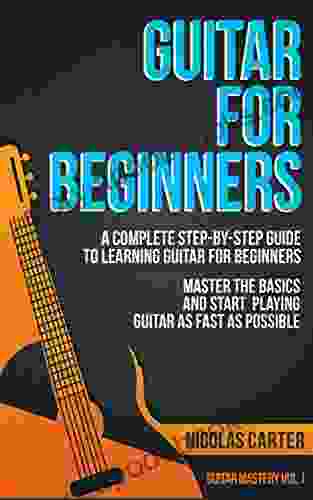
 Jorge Luis Borges
Jorge Luis BorgesUnlock Your Inner Musician: The Ultimate Guide to...
Embark on a Musical...
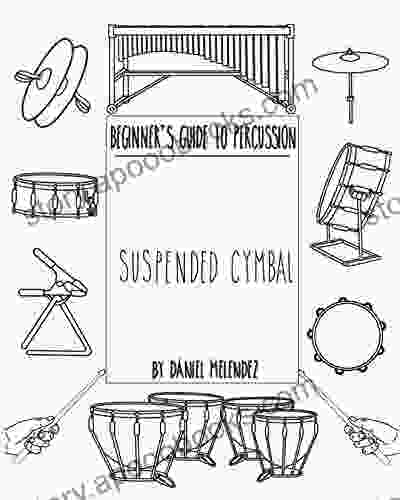
 Carlos Drummond
Carlos DrummondQuick Reference Guide To Percussion Instruments And How...
Unleash your inner rhythm with...
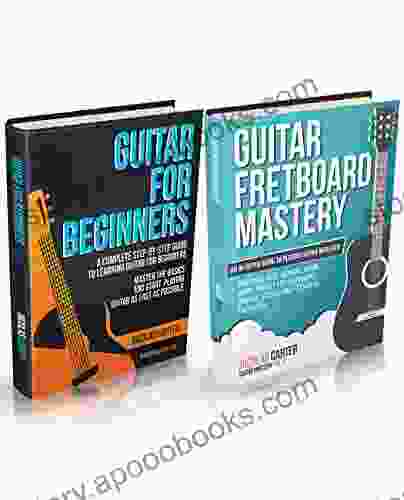
 Roberto Bolaño
Roberto BolañoUnlock Your Guitar Potential: The Ultimate Guitar Mastery...
Are you ready...

 Fred Foster
Fred FosterLooking for Lady Dee: A Punk Rock Mystery
By [Author's Name] Looking for Lady Dee is...

 Jacques Bell
Jacques BellJourney into the Mystical Realm of "Heaven Polly Alice...
In the tapestry of literature, where...

 Julio Ramón Ribeyro
Julio Ramón RibeyroSixty Years of Hits: A Musical Journey Through Time
Music has the...
4.1 out of 5
| Language | : | English |
| File size | : | 1856 KB |
| Text-to-Speech | : | Enabled |
| Screen Reader | : | Supported |
| Enhanced typesetting | : | Enabled |
| Word Wise | : | Enabled |
| Print length | : | 266 pages |



